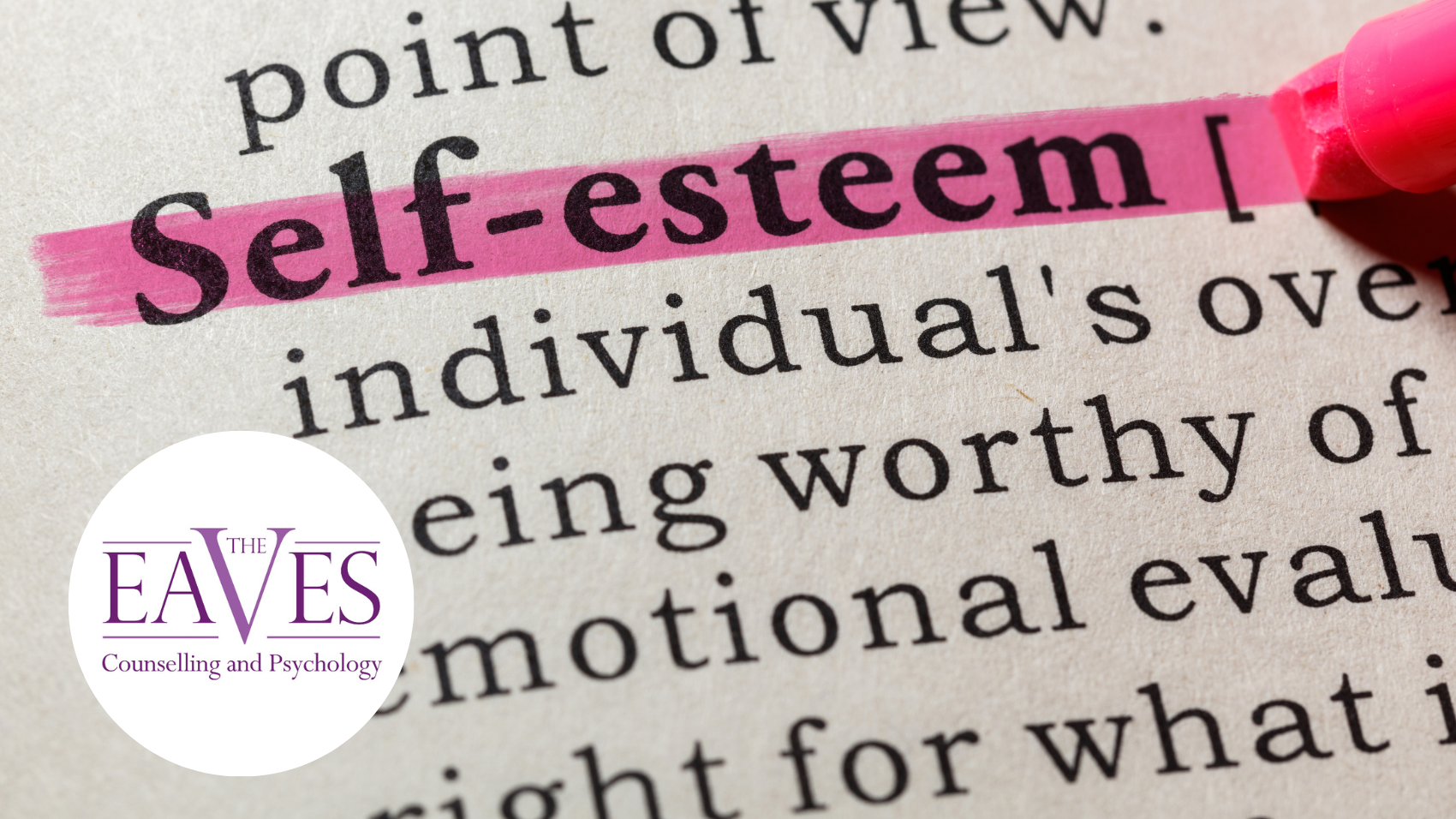How to develop more self-esteem
By Rachel Kitney, Counsellor
Low self-esteem is something I often see in therapy with clients, in this blog I want to explore low self esteem and share how this hinders our growth and potential and give some insight on how to address this.
Firstly, what is Self Esteem? Self-esteem is confidence in one’s own worth or abilities, self-respect.
If our emotional needs are met in childhood we develop high self-esteem, we develop a core understanding of what our needs are, and we trust those in our lives to meet our emotional needs and we develop worth in ourselves.
People with high self-esteem are comfortable setting boundaries without feelings of guilt, shame or rejection. Our worth is learnt when our carers can empathise with how we feel, can regulate their own emotions, are able to resolve conflict in a healthy way and teach us language to express ourselves and our emotions. Self esteem is closely linked to wellbeing, the healthier we think of ourselves the better we feel about ourselves.
So, what is low self-esteem?
When you have low self-esteem, you tend to see yourself, the world, and your future more negatively and critically. Early childhood experiences such as not fitting in at school, not meeting your parents’/carers expectations, difficult life events such as serious illness or a bereavement or being prone to negative thinking and setting extremely high standards for oneself can affect the way we see ourselves.
Early experiences including punishment, neglect, or abuse. Failing to meet other people’s expectations. Failing to meet the standards of your peers can also impact the worth we feel of ourselves.
Signs of low self esteem
A person with low self esteem can be conditioned to please others, they struggle to set boundaries and appease others even when it comes at the expense of their emotional and physical health.
Common signs of low self-esteem can be:
Lack of confidence
Negative social comparisons
Trouble asking for help.
Worry and doubt.
Difficulty accepting compliments.
Negative self-talk
Fear of failure
Poor outlook of the future
Lack of boundaries
Being a people-pleaser
People with low self esteem can feel out of control in their lives and can feel powerless to voice or assert their needs.
How to develop more self esteem
Start to understand and express your needs, this may feel uncomfortable or awkward at first, but you’ll feel more comfortable with time.
Start setting boundaries, set these around what behaviour is acceptable and what behaviour is not acceptable in your life.
Look to establish your own values and boundaries which align with who you are.
Be aware of how you place other’s thoughts, needs, opinions and judgements above your own.
Allow people to face their choices without needing to rescue, fix or care for them, this action is an act of love and supports the process of building your own boundaries.
Spend a little time each day focusing on positive thoughts, allow yourself to feel these.
Practice self-care, do what makes you happy and allow yourself the space and time for this, do the things that give you joy.
Conclusion
Low self esteem can take away the joy, growth and potential we have, acknowledging your feelings and openly talking and exploring these can create a positive step in breaking through the impact low self esteem holds in your life, understanding your worth, value and creating a space for the growth of confidence. Fostering self-esteem can create a healthier relationship with ourselves and others in our lives.
The Eaves Counselling and Psychology
The Eaves Counselling and Psychology Ltd is a select professional body of Counsellors, Psychotherapists and Psychologists, providing high quality psychological care Monday to Saturday between 9am and 9pm from our practices in Guildford, Godalming, Farnham, Haslemere and online.
Find your practitioner in five easy steps
Are you a business owner or would like more support from your job? The Eaves’ own Employee Assistance Programme (EAP) service for small to medium businesses is easy, affordable and gives staff instant access to our large team of in-house Counsellors and Psychologists at a time and date to suit them. Contact us to find out more about our EAP service
If you need immediate support please find our list of useful contacts

